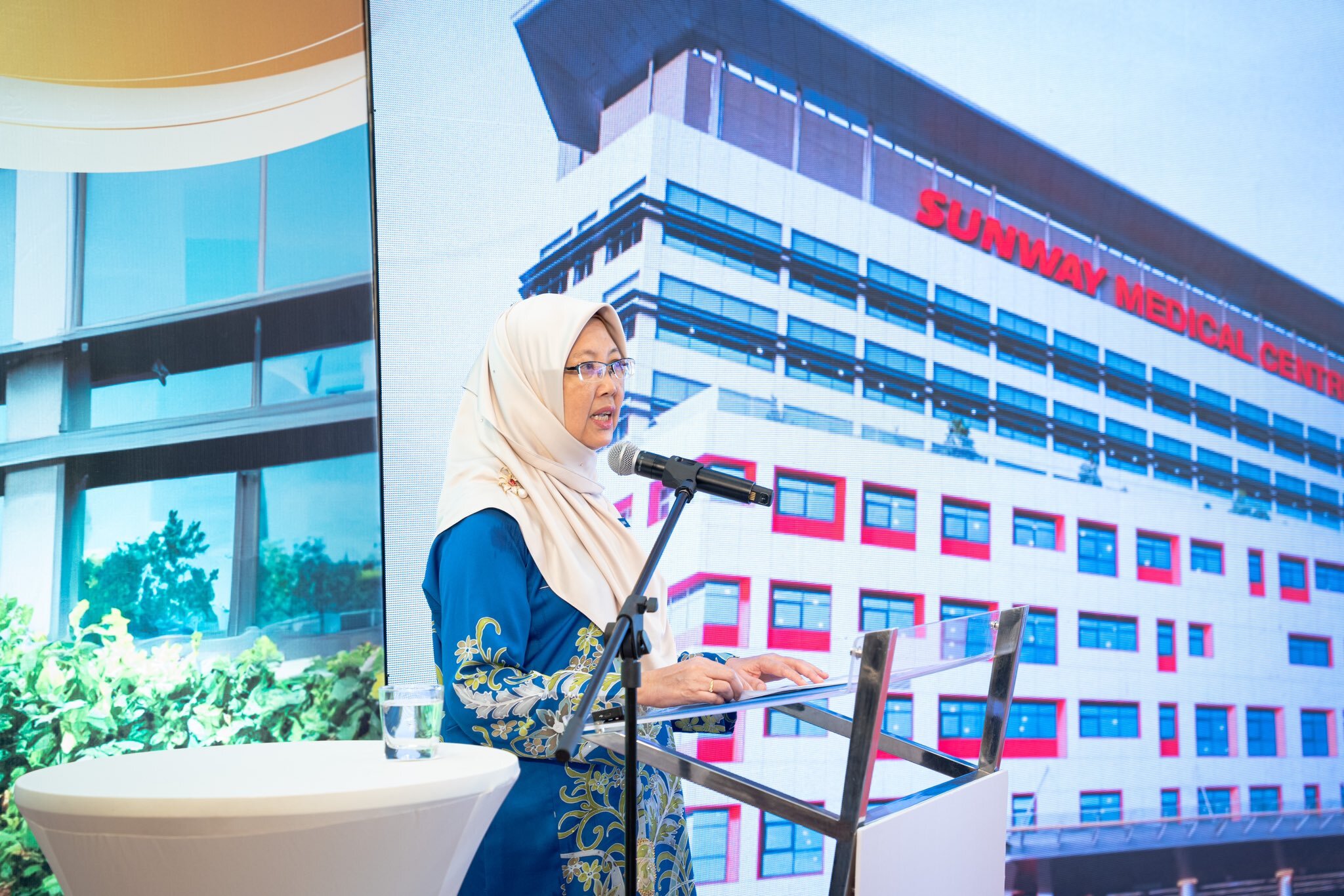KUALA LUMPUR, July 18 – Health Minister Dr Zaliha Mustafa promoted public-private partnerships in health care services at the launch of Sunway Medical Centre Penang in Seberang Jaya yesterday.
The health minister touted the role of the tertiary private hospital owned by Sunway Healthcare Group in Malaysia’s health care travel industry, particularly for Penang as a preferred destination for travellers.
“Furthermore, the @KKMPutrajaya is actively fostering effective public-private partnerships to address workload imbalances, optimise resource utilisation, and enhance access to health care services,” Dr Zaliha posted on Twitter yesterday, tagging the Ministry of Health’s (MOH) Twitter account.
“These initiatives will undoubtedly improve the overall health care landscape and benefit the public. I am genuinely excited to witness the positive impact that these endeavours will have on health care in Penang and beyond.”
The New Straits Times reported that Penang received over 217,000 health care travellers last year, generating more than RM400 million in health care travel revenue that accounted for nearly 40 per cent of the country’s total.
Dr Zaliha reportedly said Penang has generated over RM300 million in health care travel revenue in the first five months of this year.
Sunway Medical Centre Penang, the third tertiary hospital in Sunway Healthcare Group, aims to be one of the leading private medical centres in Malaysia’s northern region.
The health minister’s remarks about public-private partnerships come amid serious concerns of a crisis in the public health care sector, particularly in peninsular Malaysia, triggered by staffing shortages from the nationwide relocation of over 4,000 medical officers for permanent placements.
The Malaysian Medical Association (MMA) recently condemned the relocation exercise by the MOH and the Public Service Department (JPA) as “negligence at the highest level” that could harm patients, noting that several public hospitals, including Melaka Hospital, Selangor’s Serdang Hospital, and Sarawak’s Miri Hospital, would be losing 80 to 100 senior medical officers without replacements.
Last month, contract doctors’ group Hartal Doktor Kontrak (HDK) warned the government of a “critical health care crisis” after the relocation of doctors is completed by end July.
CodeBlue reported that Melaka Hospital’s medical department has limited reviews to Red Zone (critical) cases at the emergency unit and only accepted emergency interdepartmental referrals, due to a shortage of medical officers.
The general hospital has also suspended its iFOBT (immunochemical faecal occult blood test) colorectal cancer screening service and is looking to halve the number of elective surgeries offered.
Dr Zaliha, in remarks to reporters after a visit to a klinik desa in Kuala Terengganu last Saturday, simply claimed – without providing figures or details – that the shortage of medical officers at Melaka Hospital was “not a big problem to the extent that the hospital cannot function”.
“There may be a few deficiencies here and there, but we will have to ensure that services run smoothly. God willing, it will be coordinated as best as possible,” she was quoted saying.
A Melaka Hospital surgeon told CodeBlue that reducing elective surgical services would exacerbate the existing backlog, pointing out that patients are already facing waiting times of two and a half to three months for certain surgeries.
He also noted that patients would suffer complications without surgery even for benign cases like gallstones, which would force them to return to the emergency department, leading to an increase in admissions and emergency surgeries.
Sinar Harian also reported the health minister as saying last Saturday that the MOH was placing medical officers who completed their housemanship to fill in the gap at public health care facilities.
HDK, however, has called for a temporary suspension of transfers of permanent medical officers for a period of three to six months, once the floating medical officers (housemen turned medical officer) complete their training.








